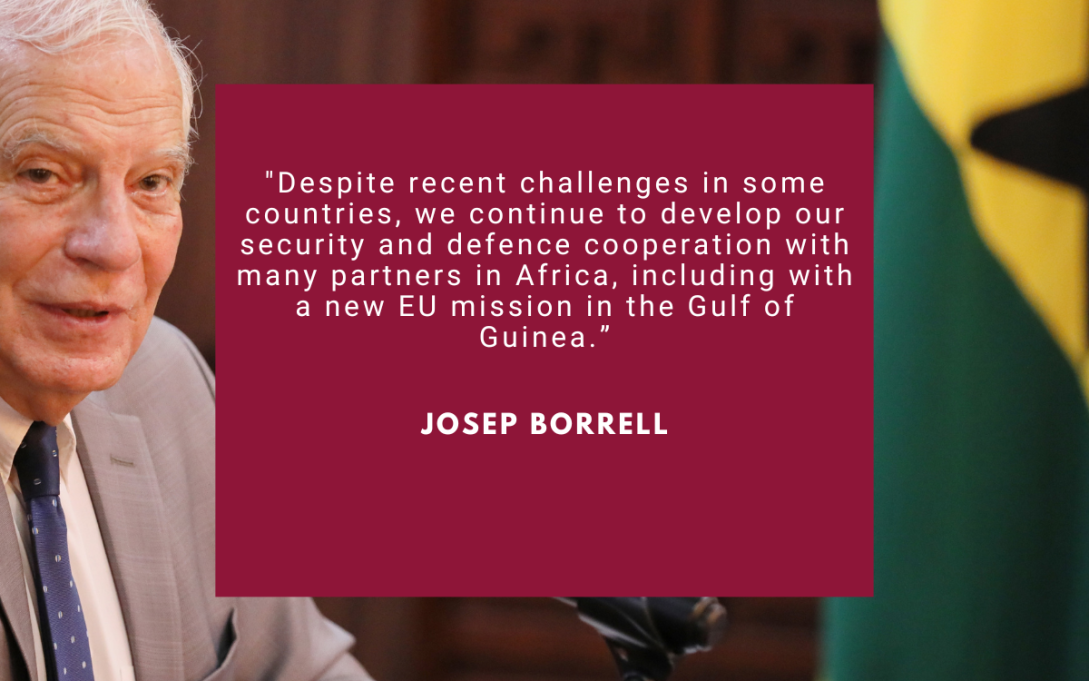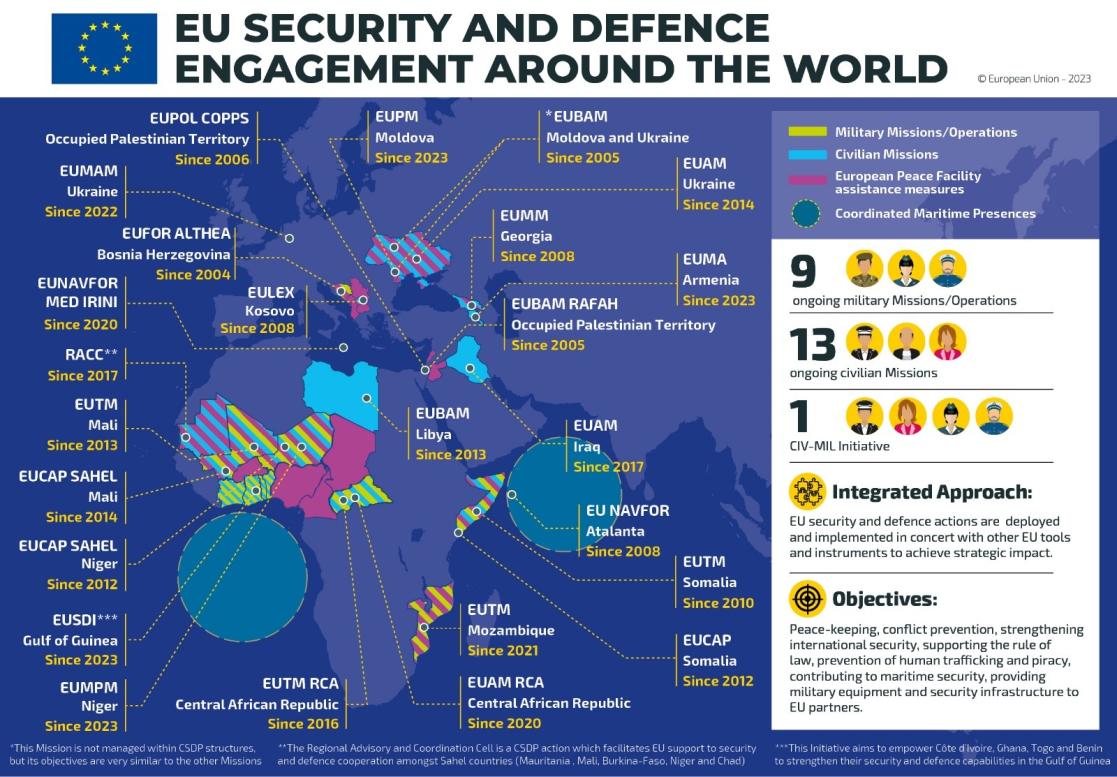Gulf of Guinea: a new security and defence partnership in Africa

The spill over of terrorism and insecurity from the Sahel to the countries of the Gulf of Guinea is not a threat anymore; it is a reality. To limit its impact, the EU is committed to help Côte d’Ivoire, Benin, Ghana and Togo reinforce their capabilities to respond to the pressure exerted by terrorist armed groups in their northern regions.
A light and flexible civilian and military EU mission
In line with the new approach proposed in the Strategic Compass, it will take the form of a light and flexible EU Mission, combining civilian, military and counter-terrorism expertise in conjunction with equipment support. It was already in this context that I travelled to Ghana last October and handed over to the country's security forces 105 armoured vehicles. This effort will complement our existing humanitarian and development cooperation programmes.

This new initiative will also complement our ongoing security support at sea to the regional organisation of the Yaoundé Architecture through the Maritime Coordinated Presence (CMP), which started in 2021. The Gulf of Guinea is indeed a vital gateway for shipping oil extracted in the Niger delta, as well as for transporting goods to and from central and southern Africa. It is currently under threat from piracy and organised crime.
EU is also active in the Horn of Africa region
Off the Horn of Africa, Operation Atalanta has a similar role. Since 2008, its action has led to a massive reduction in piracy on this vital supply route for Europe and Africa. As we celebrate its 15th anniversary, the operation continues to protect maritime traffic and contribute to maritime security in this critical area. I was on board of one of its ships last October when I visited Oman. On land, we have also been helping Somalia rebuild its security and defence forces for over ten years so that the country can retake full control of its own security. I witnessed the extent of the work carried out first-hand in September 2022.
In parallel, while our Irini naval mission contributes to maritime security and stability in the Mediterranean, controlling the UN arms embargo to Libya, another EU mission is also helping the country to reinforce border management and fight cross-border crime and terrorism. Recently, Libya has asked us to intensify our efforts in this area.
At the other end of the African continent, Mozambique, which is suffering from insurgency activities in the Cabo Delgado region, has also asked us to help its security forces meet this challenge. Since October 2021, we have been training units of the Mozambican armed forces and our training efforts were complemented by equipment support provided under the European Peace Facility. I went there in October 2022 to meet our teams and the country's leaders and witness first-hand the concrete results of our work.
An hostile signal of the military junta in Niger
Our new commitment to the Gulf of Guinea countries comes at a time when, in Niger, the military junta has decided to revoke the legal basis for the EU defence and security missions in the country despite the effective support they delivered. This is another hostile signal sent by an illegitimate military junta, which overthrew a democratically elected president. Recent history shows that expelling partner supporting efforts to improve security in Sahel results only in leaving more room for terrorism and insecurity.
Recent history shows that expelling partner supporting efforts to improve security in Sahel results only in leaving more room for terrorism and insecurity.
Our security and defence missions also encounter difficulties in countries like Mali and Central African Republic against a backdrop of increasing destabilisation in the region, encouraged by foreign actors hostile to Europe. But, like Côte d’Ivoire, Benin, Ghana, Togo, Libya, Somalia or Mozambique, many African countries are willing to work with the EU on security issues, and we are ready to do more in this area in coming months with those who are wanting to partner with us.
Lasting security can only come from economic and social development
Defence and security is of course not the only field for partnership that we propose to develop with African countries. We are well aware that lasting security can only come from economic and social development, from access for all to education, health services, electricity, etc. That is why we are also establishing numerous partnerships in these areas with countries on the continent, particularly as part of the Global Gateway initiative.
MORE FROM THE BLOG

“A Window on the World” – by HR/VP Josep Borrell
Blog by Josep Borrell on his activities and European foreign policy. You can also find here interviews, op-eds, selected speeches and videos.
